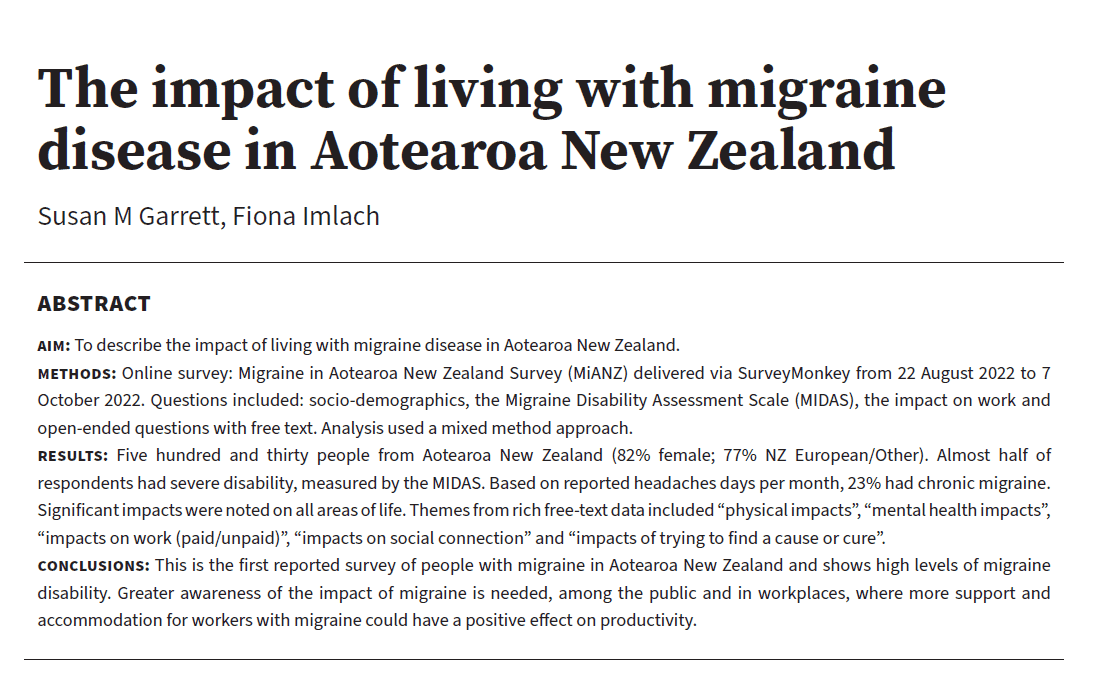We published our first paper from the inaugural Migraine in Aotearoa New Zealand Survey in the NZ Medical Journal on Friday 22 March. This explored the impact of living with migraine in Aotearoa New Zealand
From the media release sent out from the University of Otago, survey respondents reported significant disability, with half being unable to do household work, nearly a third missing family, social or leisure activities and over a quarter missing school or work on more than five days in the last three months.
Migraine impacted on work for the majority of respondents, by reducing performance at work, reducing hours able to work or ability to work at all, especially for those with chronic migraine (headache on 15 days or more per month). Migraine disease impacted on physical and mental health and led people to spend much time and money on trying to find a ‘cause’ or ‘cure’.
Our conclusions were that people with migraine in NZ could be supported to live more productive and less disabled lives through greater awareness and understanding about the nature of migraine as a complex, disabling neurological condition, more support and accommodations for workers including flexible employment and education, better support for those unable to work and increased access to effective treatments.
Our research received a lot of media attention, including 1news, the NZ Herald, The Post, Stuff, Otago Daily Times, NZ Doctor. Author Fiona Imlach did interviews on Breakfast TV, Radio NZ (Afternoons with Jesse Mulligan), for Stuff Newsable podcast, and author Sue Garrett spoke with Mike Hosking on Newstalk ZB, as did headache specialist Dr Rosamund Hill.
This might be the first time ever that migraine has been discussed on just about every media outlet in NZ and isn’t it about time! We are super grateful to the survey respondents who were willing to talk about their experiences – these stories bring the research to life and show the reality of the impact of migraine on ordinary people. A huge shout-out to Maria, Leanne, Elizabeth, Vanessa, Shannon (and Ellie, whom the media found through Instagram) who were so articulate and brave in speaking publicly about what migraine is like for them. And a huge thanks to all the others who put their hands up to be interviewed – we hope we can have their stories featured at another time.


